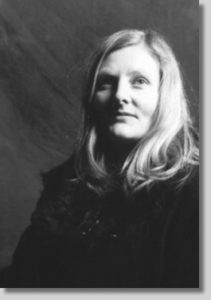‘It was an experiment and I didn’t really know how people would react’ | Interview With Lucy English

Lucy English is a Reader in Creative Writing at Bath Spa University where she is head of the Creative Writing Research Centre. She is a spoken word poet and novelist. She is co-director, with Sarah Tremlett, of Liberated Words, a CIC company, which creates, curates and screens poetry films. Lucy’s recent digital project, The Book of Hours, is a reimagining of a medieval book of hours in poetry film format. Films from this project have been screened at many international poetry and short film festivals including Visible Verse, Canada; Weimar and Zebra, Germany; Lisbon, Portugal; Juteback, US; O’Bheal, Ireland; Poole Lighthouse and Newlyn in the U.K. She is researching the placement of spoken word in poetry films. – http://www.lucyenglish.com
What/who are your biggest poetry influences?
You’re a successful novelist, poet and filmmaker, do you find that the creative processes are drastically different or compliment each other well when your moving between the mediums?
Congratulations on the ACE funding for the Bristol Poetry Festival. How did that come about?
Your new collection The Book of Hours has been described by Phillip Gross as ‘a brilliant ‘frame’ into which very different inputs can ‘flow’.’ Is that something that you were actively seeking in the creation of the work?
Which poets are you reading at the moment?
What next? Are you working on a new project?
How/where can readers find your work?
Featured Image Found here
